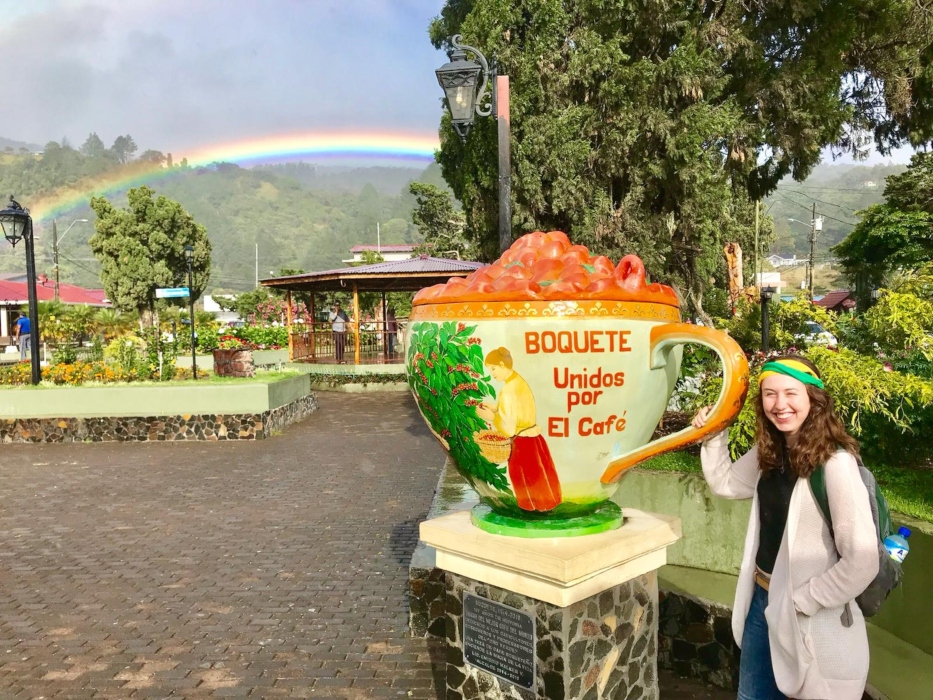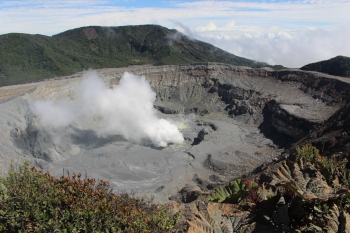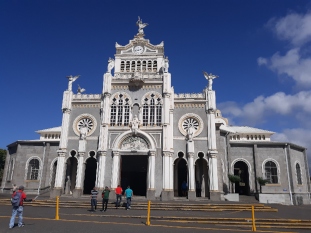
Going the Heming-Way: Trading My English for Spanish in Costa Rica
by Isabelle Rosini (B.A. English '20)
Take away the English language from an English major and what do you have?
Panic. Frustration. Spanish.
Spanish?
Yes, Spanish. And plenty of it.
There was no question that I would participate in a study abroad program during my time at Catholic. The prospect of studying abroad had been on my mind since the summer before freshman year. My sister told me about the magnificence of Rome, friends dreamily reminisced about their semesters at Oxford—there was no way that I was going to miss out on the opportunity to gather some stories of my own.
This past summer, the time came to finalize my study abroad plans. Having preoccupied myself with the subject (close to the point of being able to recite Catholic U’s study abroad options by heart), I felt that Europe was calling my name.
Italy? England? Ireland?
So, of course, I picked Costa Rica.

Having been seized with something akin to madness, I decided to negate two years of certainty that I would spend half of my junior year in Europe. Certainly I would be studying something remotely related to my English major. Instead, I chose a program that is conducted in a language of which I have no prior knowledge, in a country which many people mistake for Puerto Rico. On the day before departure, my brother asked me: “Wait, why are you going to Puerto Rico?”
Good question—can I get back to you with an answer?
Oddly, though, the decision to study abroad in Costa Rica turned out to be a no-brainer. Possibly, this was so because I had temporarily lost my brain when I made the decision.
Nevertheless, about three months after my brother questioned my judgement, I can finally explain to him why I choose this small, beautiful, and, sometimes, infuriating country.

First, studying a spoken language can be pure, unadulterated fun. Latin is the only language that I had studied in the past and it has been invaluable as a foundation for both Spanish and English Literature. Despite its many merits, though, Latin is no longer spoken in wide enough circles to be considered a living language. Thus, the study of Latin is conducted mainly with pen and paper.
Spanish, a language very much alive in the world, appears in its most natural form when spoken. Listening to native speakers talk is both a treat and a trial. How can one possibly speak so fast and with such fluidity?
Three months in and I still do not know. I do know, however, that stumbling through a new language with other US students is the best kind of mentally fecund embarrassment. My first teacher, a vivacious and inspirational woman from Puerto Rico (I guess my brother was right about something), banned the use of pen and paper when we first learned present tense verb conjugations. She intended to remind us of the human capacity for memorization in the absence of Google and unthinking, habitual note taking. She forced us to strengthen our minds by making mistakes.
While my English courses require that I articulate my thoughts both verbally and in writing, it is almost too easy to forgo the trouble of speaking in class and, instead, opt to save all my secret brilliance for exams and essays. Admittedly and more accurately, though, I have been afraid to speak up in class when I could not find the perfect words to express myself. I have been guilty of perfectionism and have over-analyzed my thoughts to the point of paralysis of the mind and mouth. I wanted to excel in my chosen discipline and, consequently, left myself little margin for error.
In Spanish class, however, there is no hiding—not when a lovely yet formidable Puerto Rican professor is staring you down and waiting for an answer.
By opting to spend three months with the Spanish language, I have forced myself to speak in class with the vocabulary level of a kindergartener. I have spoken even if I did not know exactly how or what to say. I have stopped feeling embarrassed at moments when it would be quite acceptable to feel so; I no longer feel like I have something to prove. When I come back to Catholic in the fall, I will feel free make a fool of myself in the name of pursuing truth and excellence, in an attempt to learn and improve, not to impress.

If you are an English major considering study abroad options, know this: No matter where you go, you will make the right choice, even if you end up hating everything about your program. Much of the beauty of the study abroad experience, despite all your plans and visions, is that it cannot be predicted; it can only be lived. You will learn more than you could ever imagine.
If Hemingway could set off to Cuba and Spain and trade his English for Spanish, I knew that I could too. We all can. With just two weeks left in Costa Rica, I am thankful to have acquired stories, new friends, a great deal of Spanish, and a new attitude toward education.
Photo credits: Isabelle Rosini
